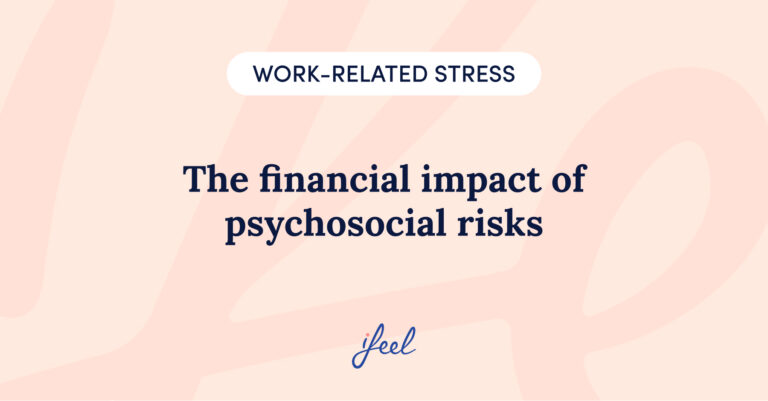Just as fuel drives a car, job satisfaction can drive performance and harmony within a company.
Job satisfaction is a crucial concept in human resource management. Companies that boost employee satisfaction will see a return on that investment in the short, medium, and long term, as understanding and improving job satisfaction can significantly impact productivity, engagement, and the work environment.
Conversely, any organisation that overlooks the importance of this concept is doomed to fall behind the performance of its direct competitors.

What is job satisfaction?
Job satisfaction refers to the degree of contentment and well-being that an employee feels in the workplace. This concept encompasses a variety of factors, such as the work environment, interpersonal relationships, remuneration, career development opportunities, and work-life balance.
Thus, job satisfaction is about a sense of pleasure, contentment, and fulfilment related to one’s work. It is an emotional experience in which work brings us some kind of joy.
At the very least, it is about our work not causing us psychological discomfort and even providing us with some well-being. How? By thinking that we have done things well, by feeling that we have been treated in the right way, by seeing that the results obtained are very close to (or even exceed) our expectations and, in short, by an employee experience that takes on a meaning beyond mere mechanical productivity.
Understanding these factors is crucial for HR managers, as an environment that promotes job satisfaction can reduce employee turnover, increase productivity, and improve the work environment. In addition, a high level of job satisfaction fosters greater employee engagement, which can translate into better company results.
How important is job satisfaction?
In larger companies, where communication and human resource management can be more complex, job satisfaction plays an even more critical role. The size and diversity of these organisations’ workforces require more sophisticated strategies to ensure that all employees feel valued and motivated.
Job satisfaction is important because it is the stuff of which a favourable employee experience is made. If employees feel that their experience in the company is positive, in a realistic way, that means at least two things.
Firstly, during their stay in the company they will have used their maximum potential at any given moment to serve the company’s objectives. Secondly, both during their stay in the company and once their journey as employees is over, they will have acted as good brand ambassadors, favouring the company’s inbound recruiting strategy, the corporate reputation and their own reputation as employees.
In this sense, job satisfaction not only improves the employee experience, but also contributes to creating a positive work environment. A good work environment can increase team cohesion and facilitate collaboration, which is essential in large organisational structures. In addition, satisfied employees are more likely to be committed to the company’s mission and goals, which improves efficiency and innovation.
Carlos Romero-Camacho Silos, Chief People & Corporate Affairs Officer at Insud Pharma, an ifeel partner, said:
“We are a family of 7,000 multidisciplinary professionals from different nationalities, enthusiastic, flexible, and enterprising. We work in a very dynamic and agile environment; therefore, we always focus on our employees and their well-being.“.
For this reason, fostering a favourable working environment can be key to job satisfaction. And to support you in this process, ifeel’s team of psychologists has created this work environment measurement survey that you can download for free, which will help you implement practical actions to promote a healthy work climate.
How to increase job satisfaction?
Achieving job satisfaction is an ongoing process that requires attention to various aspects of the work environment. Here are some effective strategies:
1. Open and transparent communication
Fostering a culture of psychological safety, where employees feel comfortable sharing their ideas and concerns can significantly improve their satisfaction. HR managers should implement efficient and accessible communication channels to ensure this.
2. Recognition and rewards
Valuing and recognising employee effort and achievement is essential. This can be through financial incentives, but also through public recognition and professional development opportunities.
3. Growth and development opportunities
Providing ongoing training programmes and opportunities for advancement within the company can increase motivation and job satisfaction.
In fact, research shows that learning and career development opportunities are crucial to job satisfaction, with 72% of employees considering this an important factor.
4. Work-life balance
Promoting policies that allow for a proper work-life balance, such as teleworking and flexible working hours, is crucial to keep employees happy and engaged.
According to statistics, 49% of workers are satisfied with employer-provided benefits such as well-being solutions and paid time off.
Javier Sordo Gómez, Head of People at Thoughtworks, an ifeel partner, shared his opinion:
“For me, having a good balance in that sense is more than 50% of the job. You can have the most incredible and most attractive work challenges. Still, it won’t do you any good if you don’t foster an environment where people feel supported professionally and personally in difficult times. Your company has to be there for you.”
Factors influencing job dissatisfaction
There are many ways to generate job satisfaction, but this also indicates that there are many ways to produce dissatisfaction in employees. Sometimes, this dissatisfaction will not be noticeable in the final product or service, at the cost of great psychological wear and tear. Other times, it will manifest itself in apathy, idleness, and lack of commitment.
To determine these factors, it is necessary to observe the permanent combination and interaction that exists between each individual’s personal factors and the environmental factors (in this case, those that refer to the company, not to the psychological characteristics of the employee or his or her particular circumstances). In this case, we will pay special attention to the latter: what the company is not doing in your favour.
Factors influencing job dissatisfaction
| Aspect | Description |
|---|---|
| Unsatisfactory or Harmful Interpersonal Relationships | Job dissatisfaction can stem from poor relationships with colleagues and the boss, or from feeling mistreated by them. It is difficult to find job satisfaction if one has to deal with an aggressive boss or toxic colleagues daily. |
| Boring or Insignificant Tasks | Working on projects that do not facilitate personal growth, do not allow for learning or professional improvement, and are monotonous and boring can decrease job satisfaction, even if other aspects of the job are acceptable. |
| Lack of Valid Social Benefits | Job dissatisfaction increases when companies do not implement measures that make employees’ lives easier. Adequate social benefits are valued more than minor perks, such as food-related perks. |
| Difficulty in Achieving Work-Life Balance | A job that prevents employees from balancing work and personal life hinders job satisfaction. Companies must understand that work time should not interfere with the employee’s overall well-being. |

Mental well-being programme for companies
At ifeel we know that job satisfaction is a fundamental pillar for the success of large companies. It not only has a positive impact on employee engagement and employee experience, but also contributes to a healthier and more productive work environment.
To assist in this process, our team of psychologists specialising in mental well-being has developed a mental well-being program for companies aimed at helping companies enhance employee engagement and boost productivity.
This collaboration allows HR managers to receive personalised, data-based advice on the most effective measures for detecting employee mental health issues and assessing the workplace climate. It’s the best way to understand their needs.
Moreover, ifeel’s corporate mental well-being solution offers employees a structured mental health care service tailored to their needs at any given time.
We hope you found this article on job satisfaction interesting. If you want more information about our mental well-being solution for companies, simply request it, and we will contact your team soon.







